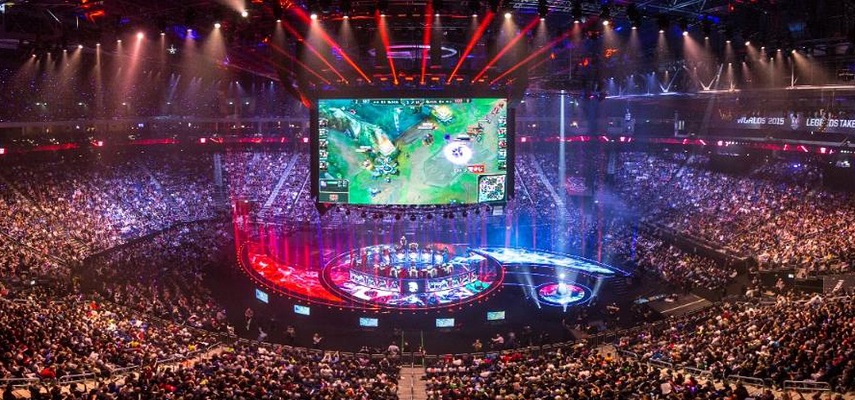With PlayStation 5 and Xbox Series X set for release in late 2020, the future of gaming is well and truly upon us. Players can expect a more powerful experience and ultra-fast storage, and for the first time ever, major games will be playable across generations and consoles.
Video games have certainly come a long way since they first emerged in the 1970s, and with the rise of cloud technology and virtual reality, there’s no denying that gaming will continue to shape how we consume entertainment. The games of today operate on a whole new level. They’re designed with impressive attention to detail and offer intricate worlds that serve as places to escape and explore – so it’s no surprise why gaming has expanded massively over the past decade.
Gaming As Digital Entertainment
It’s been predicted that the 2020 global games market will generate revenues of $159.3 billion, which equates to year-on-year growth of 9.3%. Gaming has oft been the main source of entertainment for many people looking to pass the time. However, technological advancements have been a major determining factor in gaming’s huge rise in popularity.
 Image source: Pixabay
Image source: Pixabay
Thanks to technology, we’ve seen gaming become more accessible than ever before. Gone are the days when playing games was limited to PCs and consoles. Now, games are playable across multiple platforms, with smartphone apps at the forefront of the industry’s push outside of conventional means of playing games. Mobile gaming has become the fastest-growing platform in the industry, making up a huge bulk of the gaming market – and combined with live game streaming platforms, like Twitch, the world of gaming now functions as a major media channel, alongside music, movies, and television.
Games Are Everywhere
Over the years, gaming has become more accepted by “mainstream culture”, due to the sheer breadth of choice, giving the industry access to a wider audience. From sports games to first-person shooters, people can play games of varying genres as part of other activities. As a subcategory of the wider gaming sphere, casino websites are also still hugely popular, with thousands of online slots available to play, accessible on mobile devices. Many of these websites offer excellent customer support and welcome packages. Of course, websites are easy to navigate on smartphones and tablets, so they serve as a convenient alternative to consoles. This level of variety and convenience has no doubt been one of the biggest contributors to the continued success of online gaming.
Arguably, gaming offers more escapism than any other form of entertainment. Unlike traditional media, the trajectory of a game is usually based on the player’s decisions, which makes for a stronger emotional connection between the game, characters, and the player. While most games have well-thought-out narratives, the player has to navigate the space, learn the rules of the world, and overcome several challenges in the process.

Image source: Pixabay
Gaming has long been a space for competition and digital interaction. With the rise of online gaming communities and multiplayer parties, the opportunity to engage with other players has become akin to social media. Gaming is no longer a solo pursuit. More and more games are specifically designed to enable friends to get together and build valuable connections.
The future of next-gen consoles looks promising. If the current trends of the gaming industry are anything to go by, people are seeking a much more communal and escapist experience. Backward compatibility will likely be a massive draw for players of all demographics, which could potentially take the popularity of online gaming even further. In the long-term, it’s the desire to connect, socialise, and explore that will keep players coming back.
































